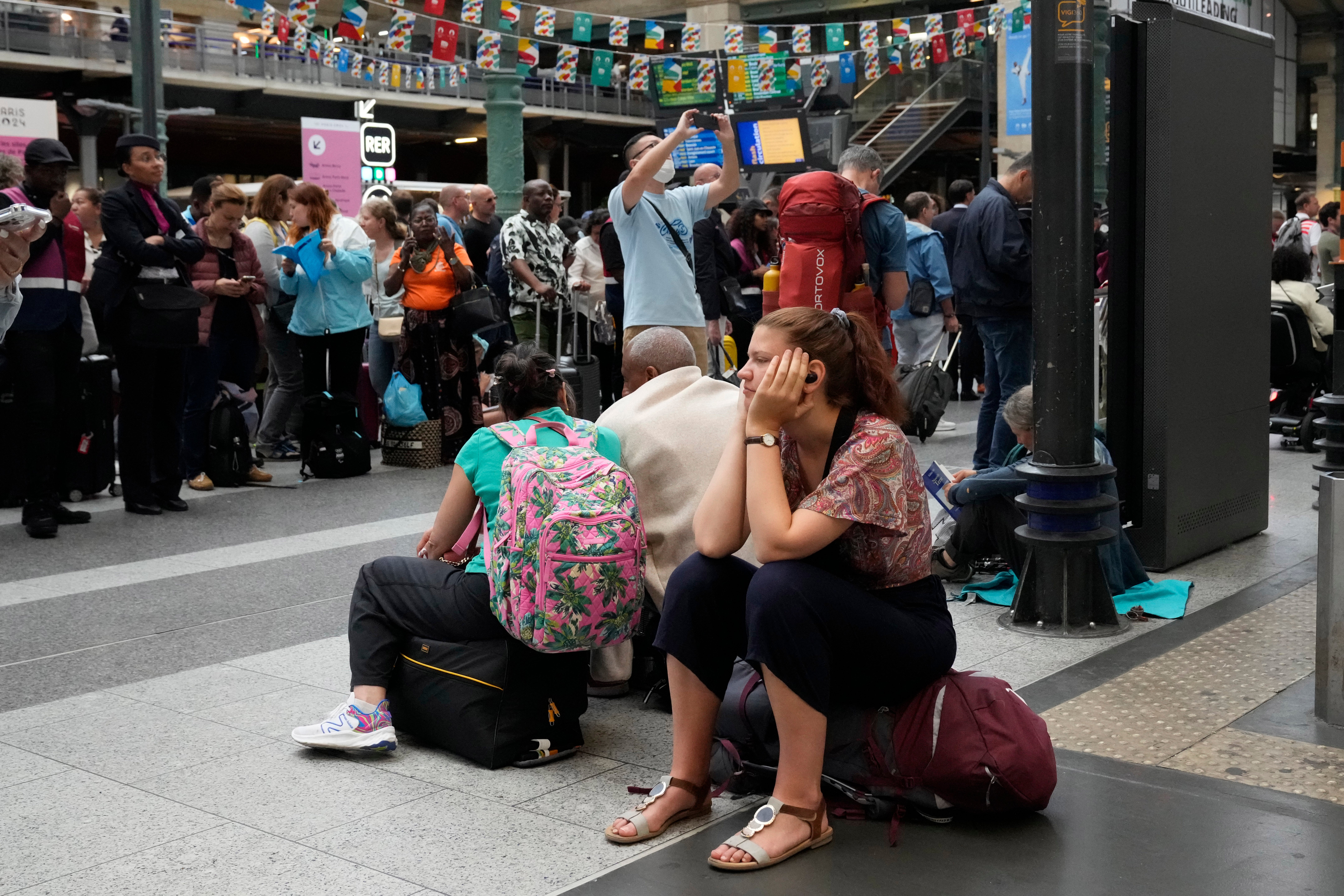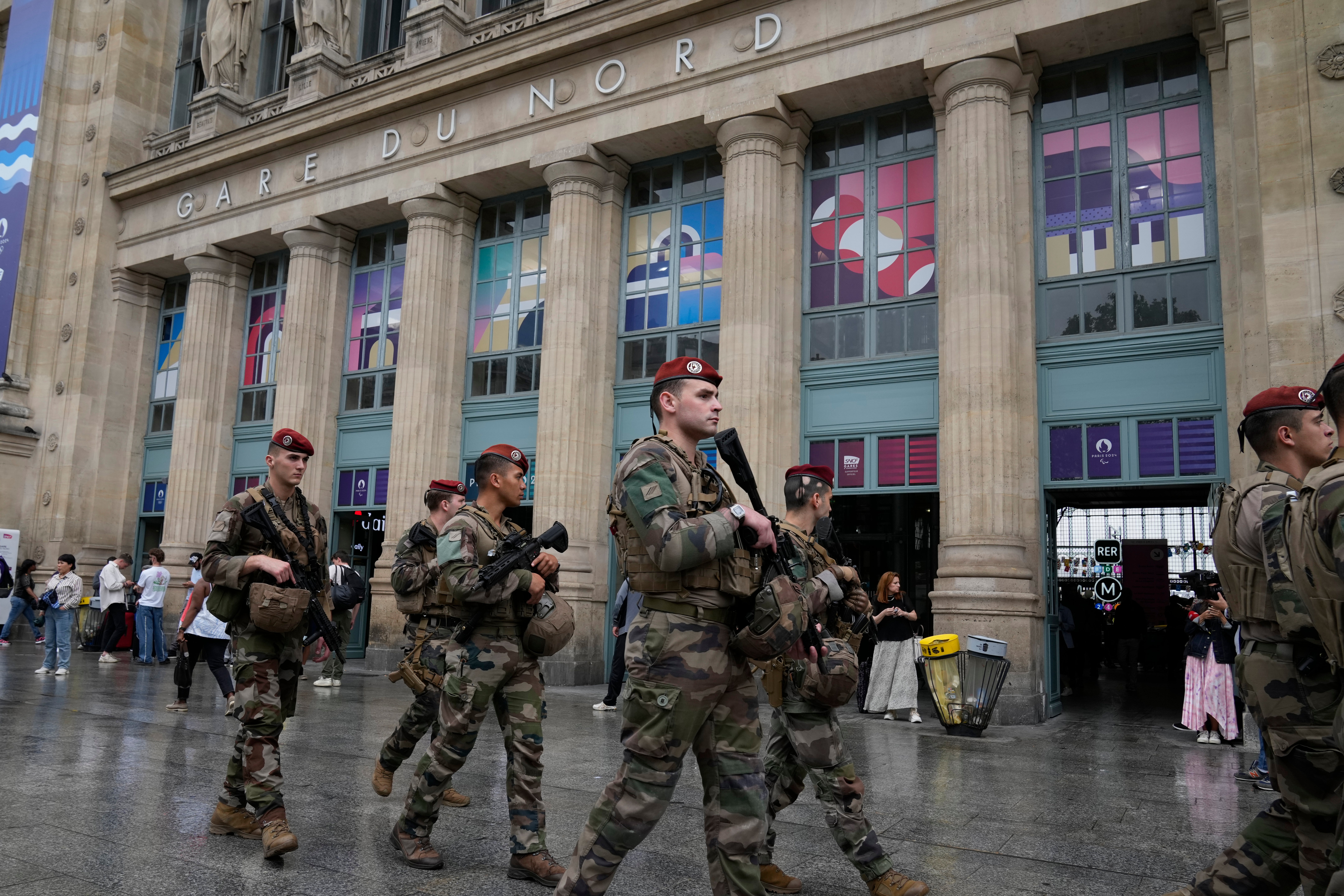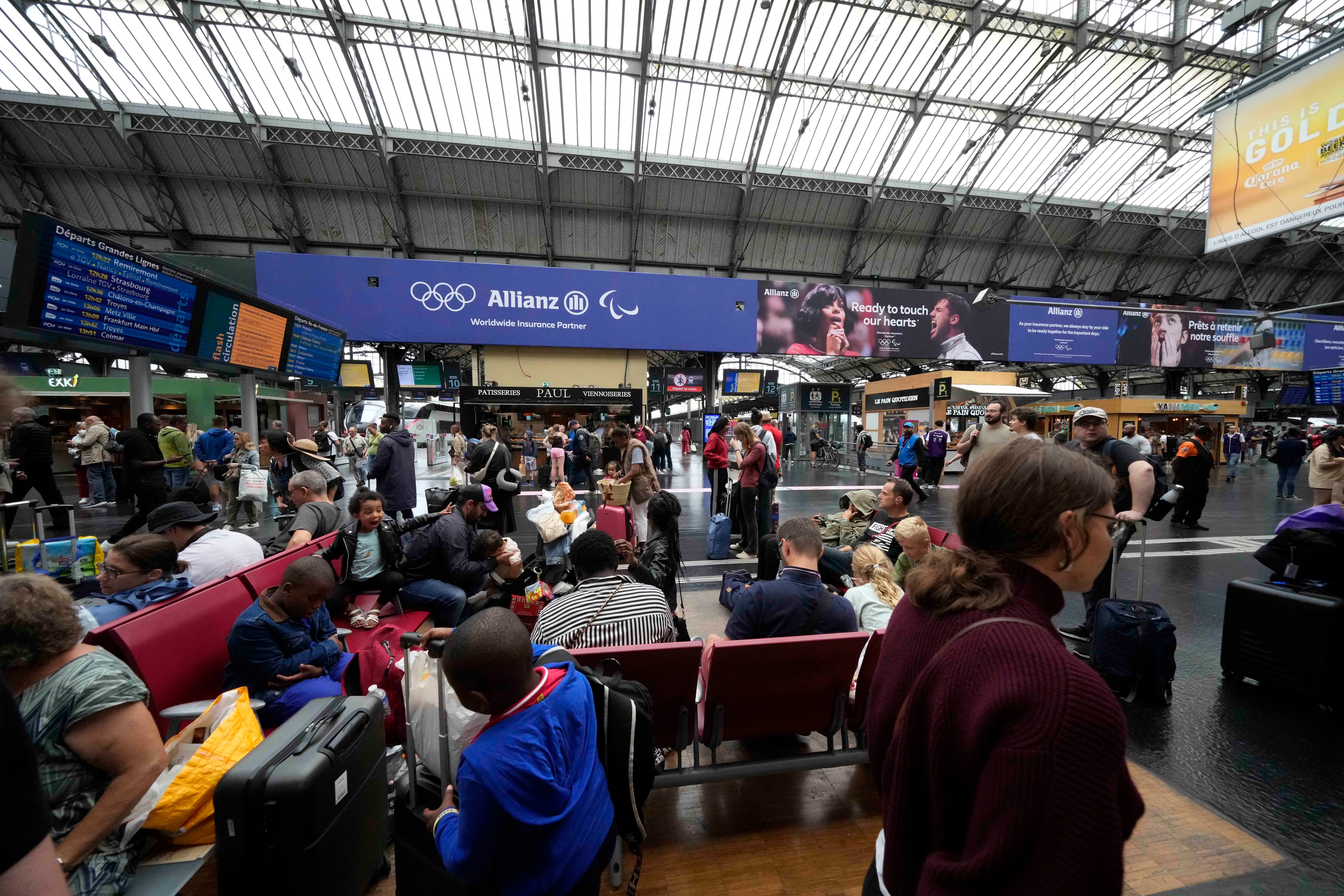This website uses cookies so that we can provide you with the best user experience possible. Cookie information is stored in your browser and performs functions such as recognising you when you return to our website and helping our team to understand which sections of the website you find most interesting and useful.
Support truly
independent journalism
Our mission is to deliver unbiased, fact-based reporting that holds power to account and exposes the truth.
Whether $5 or $50, every contribution counts.
Support us to deliver journalism without an agenda.

Louise Thomas
Editor
The impact of coordinated sabotage on the French high-speed rail network ahead of the opening ceremony of the Paris Olympics was continuing to cause chaos on day one of the games.
In the early hours of Friday morning, ahead of the opening ceremony, saboteurs destroyed signalling and power cables at key locations on the lines to the north, east and Atlantic coast. An attempt to do the same on the south line to the Mediterranean was foiled.
But as the first athletes began competing for medals, thousands of people planning to travel to Paris remained stranded after trains and flights were cancelled.
On Saturday, four of the 15 planned Eurostar services were cancelled.
After arriving in Paris by air, the Independent’s Simon Calder said: “This morning Charles de Gaulle airport is quieter than usual because the normal crowds of connecting passengers simply aren’t here. But there will be relief that the airports and the airspace are getting back to normal.
“The next challenge, according to the pan-European air navigation coordinator Eurocontrol, will be handling the exodus after the closing ceremony on 11 August.”
On the railways, the travel chaos is not over yet, with disruption set to continue through Saturday and Sunday before returning to normal on Monday, according to French transport minister Patrice Vergriete.

The sabotage incidents brought a warning that the “French are under attack” from SNCF chief executive Jean-Pierre Faranadou. He said the fires that brought trains to a halt were “a premeditated, calculated, coordinated attack”, with transport minister Patrice Vergriete describing people fleeing from the scene and the discovery of incendiary devices.
Despite the chaos, a spokesperson for Team GB told The Independent that all British competitors arrived at the Games as expected on Friday.
But with disruption expected to continue, here we take a look at getting to Paris on Saturday and in the days ahead:
Rail travel
Friday’s attack saw vandals damage infrastructure along the lines connecting Paris with cities such as Lille in the north, Bordeaux in the west and Strasbourg in the east. Another attack on the Paris-Marseille line was foiled, French rail operator SNCF said.
The arson attack on the line south of Lille affected all Eurostar trains from London. The rail firm has asked passengers to postpone their trips, and warned that trains will arrive late.
Tina Mackie, from Suffolk, was due to be in Paris by mid-afternoon on Friday. But her Eurostar train arrived four hours late. “Glad we ignored their advice to cancel,” she said. “I’m not sure many people followed the advice – the train was packed.”
Eurostar cancelled four of the 15 trains scheduled from London to Paris on Saturday, hitting more than 3,000 passengers – as the operator also warns of delays.
The rail firm told customers: “Due to the major network incident in France, your train is likely to be delayed between 1-2 hours. We advise you to postpone your trip if you can.”
There are no seats available on any of the remaining trains on Saturday.

With the high-speed line from Lille to the French capital unable to handle the planned number of services, trains are being routed along the “classic” slow line south to Paris – which was not built for either speed or capacity.
Trains from Belgium, the Netherlands and northern France are competing with Eurostar for space on the old lines.
Seven out of 10 trains are running on the north line, and the same proportion on the Atlantique line to the west and southwest.
SNCF said in a statement: “At this stage, traffic will remain disrupted on Sunday on the North axis and should improve on the Atlantic axis for weekend returns.”
Mr Vergriete echoed this assertion on Saturday, telling reporters: “There will still be disruptions tomorrow. From Monday, there is no need to worry.”

Flights
Airports in Paris were subjected to a six-hour closure for security purposes at 6pm on Friday as the opening ceremony took place, with hundreds of flights – particularly Air France and EasyJet planes – cancelled to and from Paris.
But air travel appeared to be returning to normal on Saturday morning, with only a handful of flights arriving at Paris Charles de Gaulle airport cancelled or noticeably delayed, including a flight from Gatwick which landed just under an hour beyond schedule.
The Independent’s travel correspondent Simon Calder was aboard the first British Airways flight to touch down in Paris after the main airport reopened on Saturday morning, and reported that the airport was quieter than usual due to the absence of the normal crowds of connecting passengers.
As the airports and the airspace started returning to normal, the next challenge, according to the pan-European air navigation coordinator Eurocontrol, was set to be handling the exodus after the closing ceremony on 11 August.
Buses
As the travel disruption hit on Friday, coach seats from London to Paris began to sell for more than £100 – with some reaching well over £200 for journey times of around 10 hours.
All Flixbus services from London to Paris on Saturday were fully booked, with no spaces left on all but two of those due to arrive in the French capital on Sunday. The earliest available National Express bus does not arrive until Monday afternoon.



 Africana55 Radio
Africana55 Radio 
